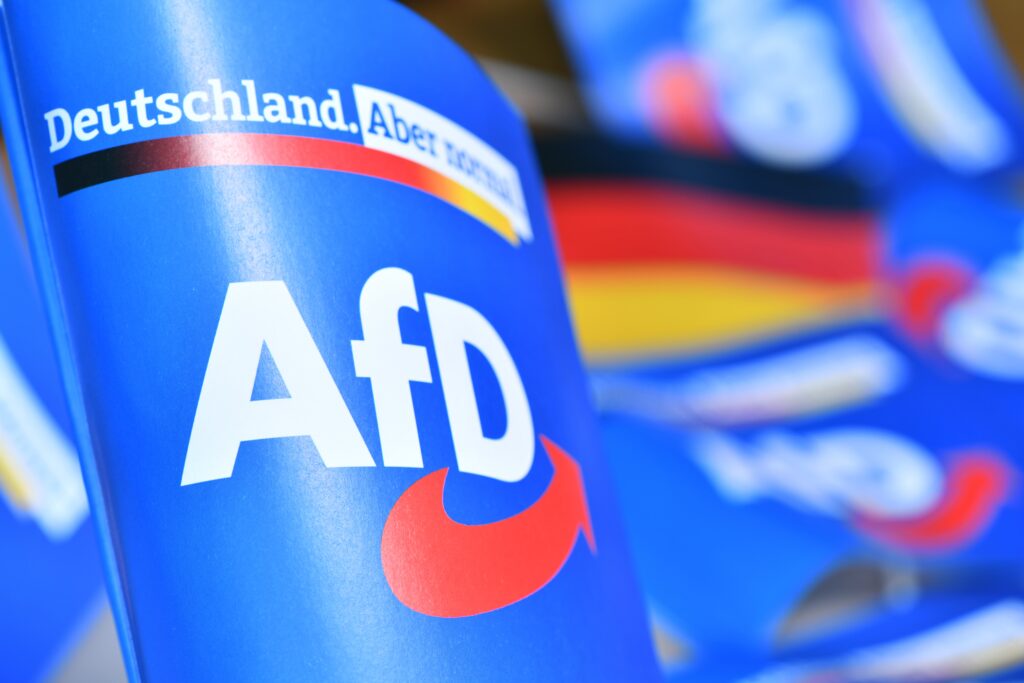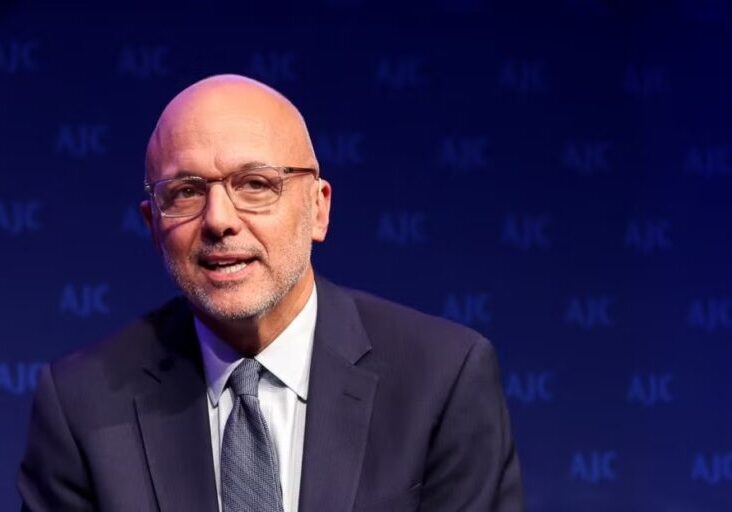Australia/Israel Review
Europa Europa: The political rinse cycle
Dec 18, 2024 | Alex Benjamin

Hans Rosling, the late Swedish physicist and academic, once declared “If you have democracy, people will vote for washing machines. They love them.”
Given the recent trending choices of a plurality of European voters, the declaration still stands, even if not quite in the way Rosling meant.
I say this because a rising number of European electorates are voting for parties actively engaged in laundering their past. They are redefining national cleanliness, one load at a time, as an ad agency copywriter might try to sell it to us.
Case in point: the far-right Alternative for Germany (AfD) party said very recently that it would replace its radical youth wing, which has been classified an extremist group by intelligence services. The youth wing’s members, mostly aged 16 to 30, have frequently been implicated in using racist chants as well as holding meetings with open neo-Nazis.
Why is AfD doing this? Simple. This particular spin cycle is all about making itself look clean and fresh to the electorate before the German federal election scheduled for February 23, while washing away opposition to a future AfD role in a ruling coalition.
To date, all of Germany’s other major parties have refused to enter coalitions with the AfD at both state and national level.
Right now, AfD is achieving second place (18%) in opinion polls, behind the centre-right CDU by a decent margin (32%) but, startlingly in German political terms, ahead of the centre-left SPD (15%). It is miles ahead of the liberal FDP (4%) party, which precipitated the election in the first place by forcing the collapse of the SPD coalition.
This second-place polling comes hot on the heels of a September election that saw the AfD become the first far-right party in Germany’s post-World War II history to win a state election, in the former East German region of Thuringia.
It also put in strong performances in elections in two other ex-communist eastern states, Saxony and Brandenburg.
Meanwhile, in the European elections earlier this year, AfD came second in Germany – despite a series of crises, including a Chinese spying scandal involving an AfD parliamentary assistant in Brussels.
So, what does all of that mean from a pro-Jewish and pro-Israel perspective?
Parties like the AfD are resolutely anti-immigrant and most definitely anti-Islam. They therefore have made noises about support for Israel that could initially appeal to Jewish ears, given how much of the European mainstream has turned relentlessly anti-Israeli since October 7.
I have written before in these pages about how the chief of staff for French far-right leader Marine Le Pen reached out to me saying she wanted to meet. When I asked why, her answer was simple: “Because my enemy’s enemy is my friend” (we didn’t meet).
Friends? Despite all the laundering and re-writing of history, these populist and far-right politicians are not all they claim to be.
For instance, most oppose circumcision and religious slaughter – essential Jewish interests – not necessarily because they are anti-Jewish, but because we are caught in the anti-Muslim crosshairs.
In the grand scheme of things, Jews are a circle that it is impossible for these right-wing nationalists to square.
And yet, some Jewish voters are increasingly supporting these parties. The Israeli Government has also actively courted them, such is the sense of abandonment and lack of meaningful support in the post-October 7 landscape by ruling and traditional parties of the centre.
Jews in the Netherlands found themselves cheering far-right political leader Geert Wilders after the Amsterdam pogrom attempt against Israeli and Jewish soccer fans on Nov. 7.
And if you want an indication of the effectiveness of Marine Le Pen’s efforts to whitewash her and her party’s image, look no further than Serge Klarsfeld, a Holocaust survivor who spent his life hunting down former Nazis. Presented with a choice between the hard-left France Unbowed movement and Le Pen’s far-right National Rally party, the 88-year-old Jewish rights activist said he would vote for the latter “without hesitation”.
While no polling is available on how French Jews voted in recent French elections, results from areas with large Jewish communities suggest support for the far-right is growing.
Time will tell if the AfD can accomplish a similar feat in Germany. Many Italian Jews seem to like far-right PM Giorgia Meloni. Jews, overall, live peaceful lives in Victor Orban’s Hungary.
One thing is certain: The drums of the washing machines are constantly churning, and Jewish concerns about past antisemitism are ostensibly being washed away each election cycle. The pro-Zionist and pro-Jewish vote is the nichest of the niche votes in Europe, but we are nonetheless a bellwether for an increasingly growing demographic of voters now open to options that were once unthinkable.
Trouble is, history has shown us that by the time buyer’s remorse kicks in, it’s often too late.
Tags: Europe, Far Right, International Jewry






